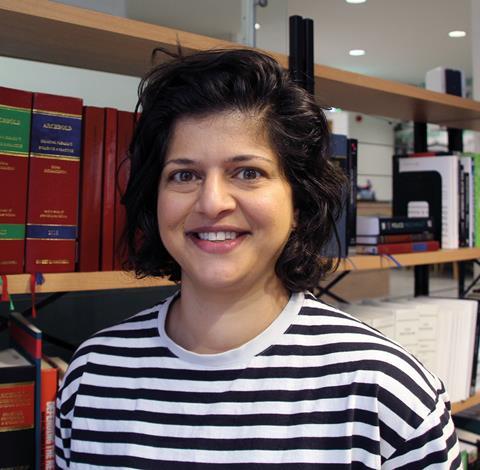Who? Lana Adamou, lawyer, Liberty.

Why is she in the news? Represented Joint Enterprise Not Guilty by Association (JENGbA) in an action against the Crown Prosecution Service over joint enterprise prosecutions.
Thoughts on the case: ‘JENGbA brought a claim for judicial review against the CPS arising from their failure to record and monitor equalities data in respect of joint enterprise prosecutions, despite being aware of prima facie evidence that Black people are disproportionately prosecuted under the doctrine. We argued that the CPS was in breach of the Public Sector Equality Duty as, without knowing the extent and causes of any discrimination, it was impossible for them to have the requisite due regard to the need to eliminate it, foster good relations and promote equality of opportunity. As a result of the case, the CPS has agreed to conduct a pilot scheme whereby the race, age and sex of people prosecuted on a joint enterprise basis, as well as any mental impairment, will be recorded, monitored and published, to be followed by a full nationwide scheme. This is not the end of the battle by any means, but being able to see plainly the extent of discrimination in who is targeted is an important first stage in eliminating it. Counsel in this case were Raj Desai and Aidan Wills of Matrix Chambers.’
A CPS spokesperson said: ‘We welcome the decision of Liberty and JENGbA to withdraw their legal action. We are establishing a pilot scheme in which prosecutors in some areas will record data on homicide cases involving joint enterprise.’
Dealing with the media: ‘Our communications team worked with JENGbA to get information about the case out on social media – seen by hundreds of thousands of people already – and into the mainstream press to shape the way joint enterprise is talked about, including the disproportionate targeting of Black people and the use of heavily racialised gang narratives. Raising awareness and publicising cases like this is essential to maximising impact, changing attitudes and holding the state to account.’
Why did you become a lawyer? ‘I wanted to make a positive contribution to society by assisting people who have experienced injustice and violence at the hands of the state to uphold their rights.’
Career high: ‘Each time I’ve assisted an individual in upholding their rights and securing some degree of justice, and each time I have played some small part in bringing about systemic change.’
Career low: ‘When a judge interrupted counsel’s flow during a trial to ask, “Who is responsible for this eccentrically paginated bundle?”. That, and engaging with the police complaints process.’



























No comments yet